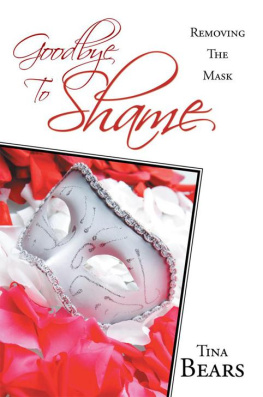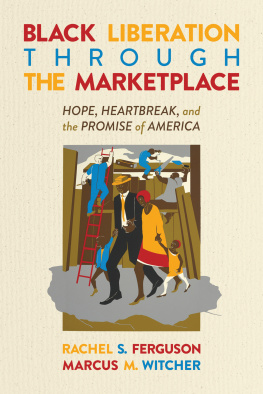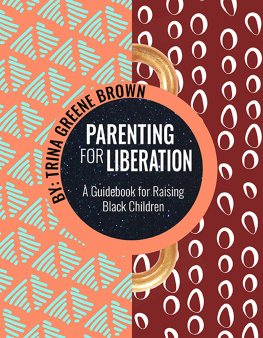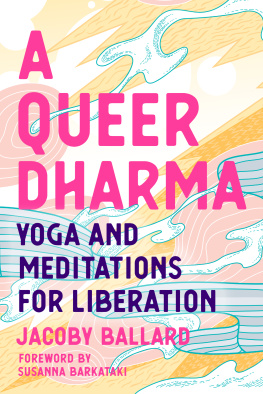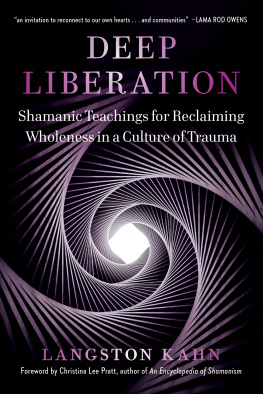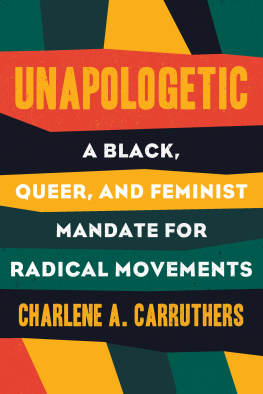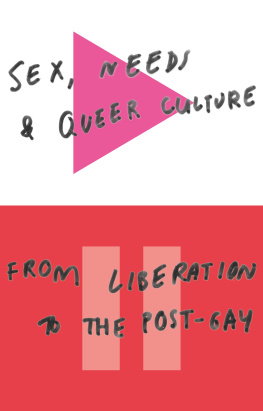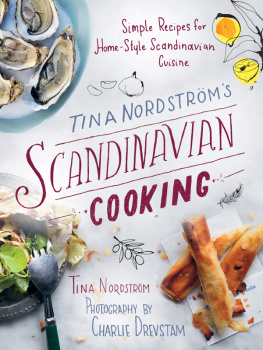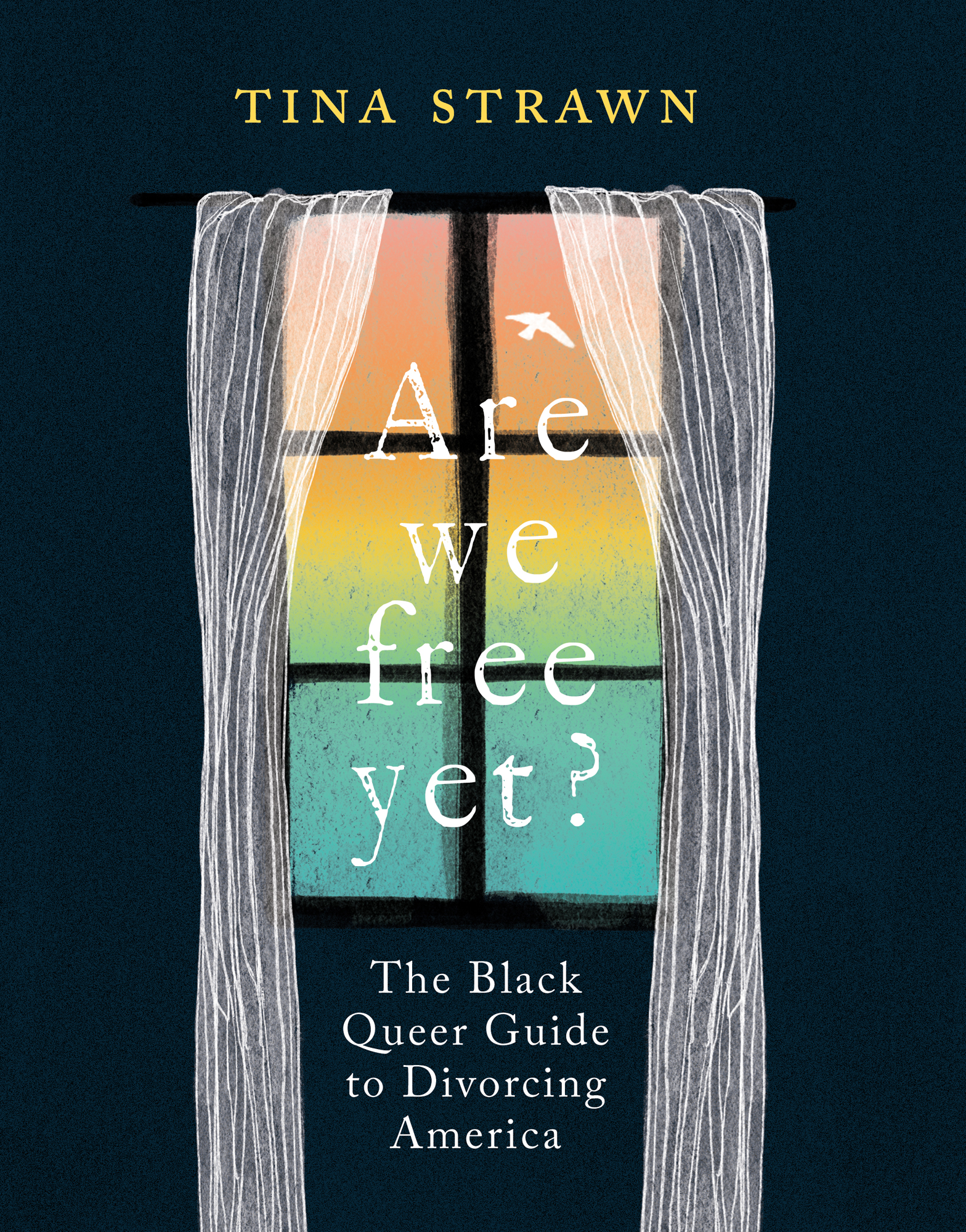Contents
Guide
Tina Strawn
Are We Free Yet?
The Black Queer Guide to Divorcing America
Copyright 2022 by Tina Strawn
This is a work of non-fiction. However, some names and identifying details have been changed to protect the privacy of individuals.
Honoring the Ori is reprinted by permission of Journal of Psychology and Christianity.
A list of definitions of queer in chapter forty-four is reprinted by permission of the Queer 101, Unitarian Universalist Association blog.
Queer Morning Blessings are reprinted by permission of Dori Midnight and Randy Furash-Stewart.
Excerpt from How We Get Free: Black Feminism and the Combahee River Collective is reprinted by permission of editor Keeanga-Yamahtta Taylor.
Row House Publishing recognizes that the power of justice-centered storytelling isnt a phenomenon; it is essential for progress. We believe in equity and activism, and that booksand the culture around themhave the potential to transform the universal conversation around what it means to be human.
Part of honoring that conversation is protecting the intellectual property of authors. Reproducing any portion of this book (except for the use of short quotations for review purposes) without the expressed written permission of the copyright owner(s) is strictly prohibited. Submit all requests for usage to .
Thank you for being an important part of the conversation and holding sacred the critical work of our authors.
Library of Congress Cataloging-in-Publication Data Available Upon Request
ISBN 978-1-955905-05-3 (TP)
ISBN 978-1-955905-11-4 (eBook)
Distributed by Simon & Schuster
Book design by Aubrey Khan, Neuwirth & Associates, Inc.
Bird by Diego Naive from NounProject.com
Cover design by Janay Nachel Frazier
In loving memory of Breonna Taylor and Erica Watson.
I wish we were all hippies and did yoga, lived in cottages, smoked weed, accepted everyone for who they are, and listened to wonderful music. I wish money didnt make us who we are. I just wish we could redo society.
UNKNOWN
The Guide to the Guide

I have a deep knowing, an ancestral calling, and a burning desire that my lifes purpose is to speak, teach, write, and travel. In the summer of 2019, I retired from my fifteen-year fitness career to do just that, all focused on my antiracism work of educating, facilitating, coaching, consulting, and podcasting. I was a part of a newish community of antiracism educators and racial justice activists, advocates, allies, accomplices, and coconspirators all committed to fighting systemic racism and dismantling white supremacy in the United States. All of us were committed to the fight for Black lives. We were a part of the new civil rights movement. We were the revolution, and we were gonna change the world.
Thanks to COVID-19, by March 2020, the revolution went virtual and digital. When I reflect back on some of the collective traumas we experienced that year, in addition to living through a global pandemic, I think about and hold with great tenderness the murders of Ahmaud Arbery, Breonna Taylor, George Floyd, and too many other Black lives that were taken so brutally, senselessly, and rapidly that we didnt seem to have time to catch our grief breaths before there was another Black life taken, another Black name turned into a hashtag. Black America was under attack in a very visible and viral way. We were constantly being fed horrific images and videos of Black trauma porn. The country was thick and sick with the stench of Black death. By the time summer rolled around, and the country started to burn with uprisings in the streets, this activist was completely burnt the fuck out.
But lets run this back a bit
I became comfortable with calling myself an activist in 2017, activated in a political sense in November 2016. I attended the Womens March of January 2017 in Atlanta, and after getting connected with several local, online, liberal, and Democratic groups (made up of predominantly white women), I got my first taste of politics. I started phone banking, canvassing, writing postcards, and reaching out to my local government representatives in an attempt to make my voice heard. In the work and on the streets, I met John Lewis and Jon Ossoff, Lucy McBath, Cory Booker, and other Democratic candidates, elected officials, and shining stars. I was a poll watcher for several local elections and received training from the LBGTQ+ rights organization Georgia Equality on holding voter registration drives, and I personally scheduled, organized, and hosted a dozen voter registration events across the Atlanta area during the 2018 midterm election season. I volunteered on a few political campaigns, including those of Stacey Abrams for governor of Georgiathe first Black woman to represent a national party for governor of any US stateand another local Black woman who was running for a house district seat in my very white, affluent, and conservative community of East Cobb, in the city of Marietta.
While I was getting politically involved, I was also continuing my journey of racial awakening, a journey that had begun in July 2016 after I accidentally saw the videos on Facebook of Alton Sterling and Philando Castile being killed by cops, which both shattered me and radicalized me. Being so broken by the racial realities with which I was forced to reckon, I began doing the deep inner work of unpacking my own internalized racism, which led me to develop a meditation practice, something I didnt have despite the fact that I had been teaching yoga classes in many studios and boutiques since 2012. I then started protesting and marching in the streets. I read Just Mercy, a memoir by the lawyer and social justice activist Bryan Stevenson, which had such a tremendous impact on me that I created antiracism and yoga trips, which are designed for folx who are on their own personal antiracism journeys and want to use the practice and philosophy of yoga as tools to dismantle racism. I was invited to speak on panels about racism and white supremacy, and I was volunteering at local high schools, speaking with their gay-straight alliance groups.
By the fall of 2019, I had twice been a guest on Speaking of Racism, a newly formed podcast by a white Midwestern woman named Jen Kinney. As a result of those podcast episodes, I began to get emails from white women around the country asking me for antiracism coaching and for more information about Legacy Trips. My antiracism work was growing.
As the exposure of the podcast and social media platform grew, Jen faced tough and valid concerns from Black women questioning her role as a white woman owning a podcast that talked about racism. This led her to ask me to acquire the podcast, making it Black led and Black owned.
So going into January 2020, I was the new owner of the Speaking of Racism podcast, and scheduled to host more Legacy Trips and more screenings and discussions of HBOs documentary True Justice: Bryan Stevensons Fight for Equality. And I planned to do more traveling, together with my wife, as nomads around the globe. At the top of the year that likely changed the shape of our species, my own life took a turn for the unexpected.


